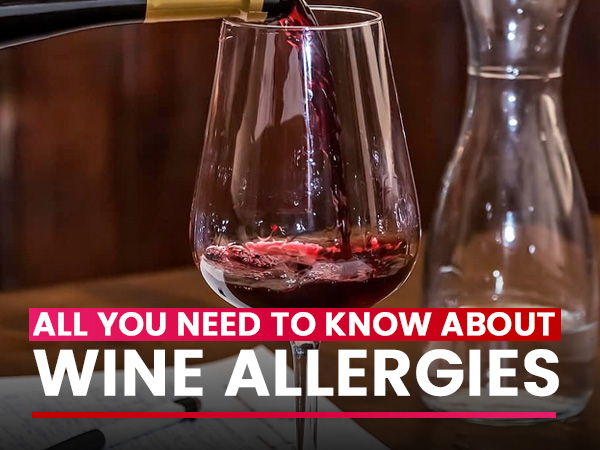Just In
- 4 hrs ago

- 4 hrs ago

- 8 hrs ago

- 14 hrs ago

Don't Miss
- Sports
 Pakistan vs New Zealand: PCB's Failure to Learn Lesson As Fans Continue To Suffer At Rawalpindi Cricket Stadium
Pakistan vs New Zealand: PCB's Failure to Learn Lesson As Fans Continue To Suffer At Rawalpindi Cricket Stadium - Finance
 1:10 Stock Split: Below Rs 10, Fertilizer Sector Turned Ex-Split; 8,282% Returns In 5 Years
1:10 Stock Split: Below Rs 10, Fertilizer Sector Turned Ex-Split; 8,282% Returns In 5 Years - Movies
 Pukaar Dil Se Dil Tak Promo: Sayli Salunkhe Impresses In First Video Of Sony TV Show, Details About Her Role
Pukaar Dil Se Dil Tak Promo: Sayli Salunkhe Impresses In First Video Of Sony TV Show, Details About Her Role - News
 Chinese President Xi Jinping Orders Biggest Military Reorganisation Since 2015
Chinese President Xi Jinping Orders Biggest Military Reorganisation Since 2015 - Education
 Exam Pressure Does Not Exist; Studying Punctually is Crucial; Says Aditi, the PSEB 2024 Topper
Exam Pressure Does Not Exist; Studying Punctually is Crucial; Says Aditi, the PSEB 2024 Topper - Automobiles
 Suzuki Swift Hatchback Scores 4 Star Safety Rating At JNCAP – ADAS, New Engine & More
Suzuki Swift Hatchback Scores 4 Star Safety Rating At JNCAP – ADAS, New Engine & More - Technology
 Dell Introduces AI-Powered Laptops and Mobile Workstations for Enterprises in India
Dell Introduces AI-Powered Laptops and Mobile Workstations for Enterprises in India - Travel
 Journey From Delhi To Ooty: Top Transport Options And Attractions
Journey From Delhi To Ooty: Top Transport Options And Attractions
Everything You Need To Know About Wine Allergy
Wine is a popular alcoholic beverage that people enjoy drinking all around the world. From raising a toast to pairing it with dinner, a glass of wine is perfectly enjoyed and works well with almost everything. Several studies have shown that wine contains phytochemicals such as polyphenols, resveratrol, quercetin and flavonoids that provide a number of health benefits when it is drunk in moderation - about a glass per day [1] [2].
As wine is known to provide several health benefits, drinking wine can also cause an allergic reaction. Although rare, hypersensitivity reactions to alcoholic beverages, particularly red wine are common and affect 10 percent of the population [3].
In this article, we'll talk about wine allergy, the potential allergens in wine, its causes, symptoms and how it can be treated.

What Causes Wine Allergy?
Allergies are an abnormal immune response to certain allergens present in wine. Wine allergy is caused due to sensitivity to grape (Vitis vinifera) proteins and ingredients used for the fining of wines such as fish gelatin or isinglass, dairy products, ovalbumin, gum Arabic, enzymes, mold (Botrytis cinerea) and yeasts [4] [5].
A 2012 study reported that one of the proteins found in wine is the lipid transfer protein (LTP), which is found in the grape skin. LTP is a recognised allergen and can lead to serious symptoms like anaphylaxis [6] [7].


Symptoms Of Wine Allergy
Some of the symptoms of wine allergy include:
- Nasal congestion or runny nose
- An itching or burning sensation on the mouth, lips or throat
- Swelling of the mouth, lips or throat
- Difficulty in breathing
- Rash or hives
- Nausea and vomiting
- Diarrhoea
- Anaphylaxis (a severe, life-threatening allergic reaction that requires immediate medical attention) [8] [9]. It causes symptoms like rash or hives, shortness of breath, rapid heartbeat, low blood pressure and swelling of the throat.

Potential Allergens In Wine [10] [11]
- Specific proteins in grapes
- Mold (Botrytis cinerea)
- Protein-containing clearing agents
- Proteins from insects
- Cross-reactive carbohydrate determinants (CCD)
- Inorganic wine components (ethanol, acetic acid, sulphites and acetaldehyde)
10 Healthy Ways To Eat More Vegetables EveryDay

How To Distinguish Between A Wine Allergy And Wine Intolerance?
Wine allergy occurs when you have an allergic reaction to grape proteins and other ingredients found in wine. And wine intolerance occurs when your body does not have the proper enzymes to break down the ingredients in alcohol.
The ingredients commonly found in wine can cause intolerance reactions, these include chemicals or other ingredients, sulphites or other preservatives and histamine [12].
The symptoms of wine intolerance are similar to wine allergies and the two often can be mistaken. The wine intolerance symptoms include nasal congestion or runny nose, flushed skin, headache or migraine, nausea or vomiting, rapid heartbeat, low blood pressure and worsening of asthma [12].


Red Or White Wine, Which One Is More Likely To Cause An Allergy?
Studies have shown that more people have reported symptoms after drinking red wine than white wine [13]. A 2005 study published in the Respiratory Medicine found that red wine and white wine were the most common triggers of alcohol-induced nasal symptoms (ANS) reported in 83 per cent and 31 per cent of people, respectively [14].
The reason why red wine increases the chances of allergic reactions compared to white wine is that white wine is fermented without grape skin and red wine is fermented with grape skin. The common allergen lipid transfer protein (LTP) is found in the grape skin which is known to cause an allergic reaction [15].
When To See A Doctor
Consult a doctor immediately if you experience the above mentioned wine allergy symptoms. Also if you experience the symptoms of anaphylaxis, seek medical attention immediately.

Diagnosis Of Wine Allergy
Here are some allergic tests to determine if you have a wine allergy:
- Skin test - It is done by injecting or pricking a small bit of allergen under your skin. If you are allergic to the allergen, allergic reactions like redness or swelling will occur immediately [16].
- Blood test - A sample of blood will be taken to test for allergy-related antibodies called IgE antibodies.

Treatment For Wine Allergy
- Antihistamines - Oral antihistamines are prescribed for treating minor allergic reactions to wine [17].
- Epinephrine autoinjector (EpiPen) - This medication is used in an emergency to treat severe allergic reactions [17].
- Oral immunotherapy - It is a potential treatment for food allergy. A 2010 study showed that this treatment option can help treat patients who experience wine allergy [18].
-
 pregnancy parentingEye Flu and Breastfeeding: Everything You Need to Know
pregnancy parentingEye Flu and Breastfeeding: Everything You Need to Know -
 healthEye Flu Cases Rise In India: 5 Home Remedies To Prevent Conjunctivitis Virus In Monsoon
healthEye Flu Cases Rise In India: 5 Home Remedies To Prevent Conjunctivitis Virus In Monsoon -
 wellnessHoli: Beware Of These Side Effects Of Holi Colours
wellnessHoli: Beware Of These Side Effects Of Holi Colours -
 kidsAllergy In Kids: Ways To Keep Kids Safe From Pet Allergies
kidsAllergy In Kids: Ways To Keep Kids Safe From Pet Allergies -
 wellnessWhy Do We Always Get Cold Or Flu In Cold Weather?
wellnessWhy Do We Always Get Cold Or Flu In Cold Weather? -
 wellnessNational Eczema Week 2021: What Clothing Triggers Eczema Flare-ups?
wellnessNational Eczema Week 2021: What Clothing Triggers Eczema Flare-ups? -
 disorders curePeople With These Medical Conditions Should Avoid Eating Papaya
disorders curePeople With These Medical Conditions Should Avoid Eating Papaya -
 wellnessEvidence-Based Health Benefits Of Onion Juice: Weight Loss, Fertility, Diabetes And Many More
wellnessEvidence-Based Health Benefits Of Onion Juice: Weight Loss, Fertility, Diabetes And Many More -
 pregnancy parentingTop 7 Home Remedies For Itchy Nipples
pregnancy parentingTop 7 Home Remedies For Itchy Nipples -
 basicsWhy Are My Nipples Itchy? Top 7 Reasons
basicsWhy Are My Nipples Itchy? Top 7 Reasons -
 wellnessHolding In A Sneeze Can Be Dangerous
wellnessHolding In A Sneeze Can Be Dangerous -
 disorders cureWhat Is Christmas Tree Syndrome? Causes, Symptoms And Prevention
disorders cureWhat Is Christmas Tree Syndrome? Causes, Symptoms And Prevention


 Click it and Unblock the Notifications
Click it and Unblock the Notifications



